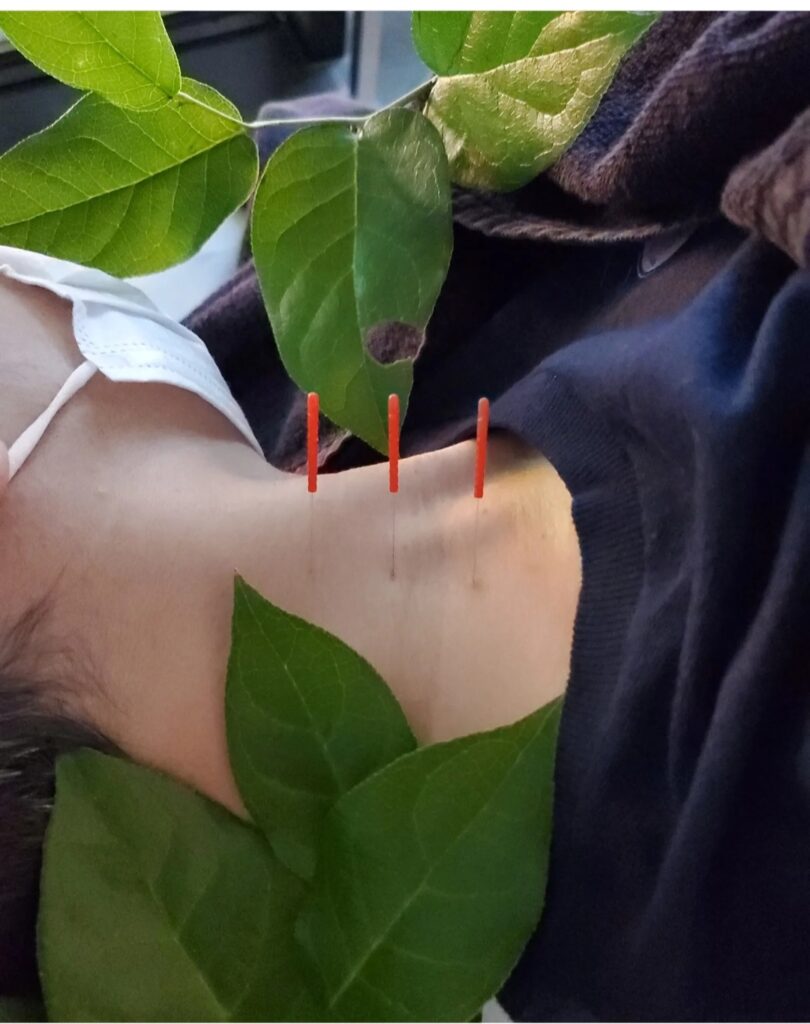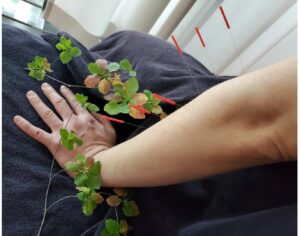首コリ 後頸三角
neck muscles pain
首の筋肉で、コリ易い部分があります。後頸三角もそのひとつです。後頸三角の三角を構成するものは、僧帽筋、胸鎖乳突筋、鎖骨です。三角の中には、外経静脈、頸横動脈、頸神経叢、腕神経叢、頸リンパ節、副神経、胸管が通ります。人間の頭部は約4~6kg位あり、首は正面を向いているだけでもストレスがかかります。頭頚部を下に傾ける、うつむくだけでも、負担が増えます。スマホやパソコンを長時間使用するのも、うつむく姿勢となり、首には負担となります。同じ姿勢を続けることも、筋肉が緊張して、血流が滞り、疲労が蓄積し、凝りや痛みの症状につながります。さらに、運動不足や加齢などで、筋力が低下すると、猫背になりやすくなります。猫背は首が前に出て、首の後ろや横の筋肉が常に緊張している状態になります。その結果、血流が悪くなり、首や肩の凝りや痛みを引き起こします。普段の姿勢のみならず、睡眠時の姿勢が悪いことや、身体に合っていない枕を使用していると、疲労が取れなかったり、首・肩が凝ったりする事もあります。呼吸の抑制、首のシワにも繋がるので注意が必要です。また、柔らかい枕は、頭部を安定させようとするため、常に首が緊張する状態が続いてしまうため、首こりの原因となります。ストレスも、交感神経が優位となり、血管が収縮し、血行が悪化するため、首・肩の凝りを引き起こします。
Some neck muscles are more prone to stiffness than others. The posterior cervical triangle is one such area. The posterior cervical triangle is composed of the trapezius muscle, sternocleidomastoid muscle, and clavicle. Within the triangle pass the external transverse vein, transverse cervical artery, cervical plexus, brachial plexus, cervical lymph nodes, paracervical nerves, and thoracic duct. The human head weighs about 4-6 kg, and the neck is stressed even when facing forward. Simply tilting the head and neck down or slouching increases the strain. Prolonged use of a cell phone or computer also puts strain on the neck. Continuing in the same posture also causes muscle tension, blood flow stagnation, and fatigue, leading to symptoms of stiffness and pain. In addition, muscle weakness due to lack of exercise or aging makes it easier to hunch back. In a hunched back, the neck is forward and the muscles behind and to the sides of the neck are constantly tense. This results in poor blood flow, causing stiffness and pain in the neck and shoulders. Poor posture not only in everyday life, but also when sleeping and using pillows that do not fit the body can cause fatigue and stiff neck and shoulders. It is important to note that this can also lead to breathing inhibition and wrinkling of the neck. Soft pillows can also cause stiff necks because the neck is constantly strained as it tries to stabilize the head. Stress also causes stiffness in the neck and shoulders because the sympathetic nervous system becomes dominant, blood vessels constrict, and blood circulation deteriorates.



